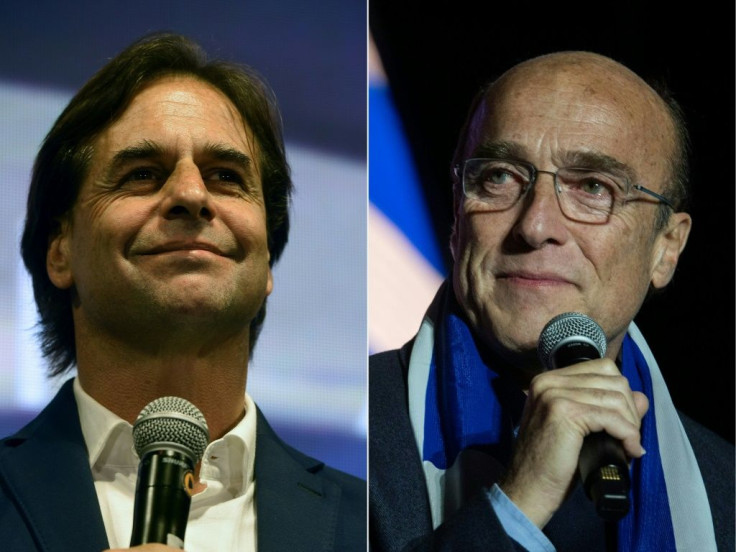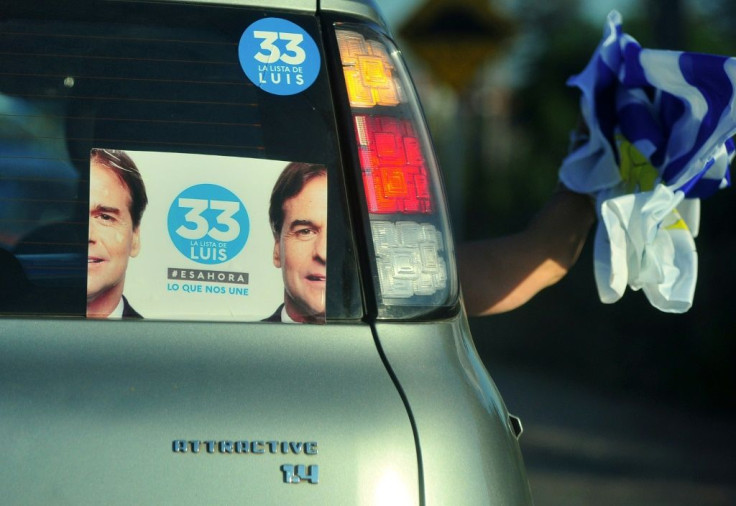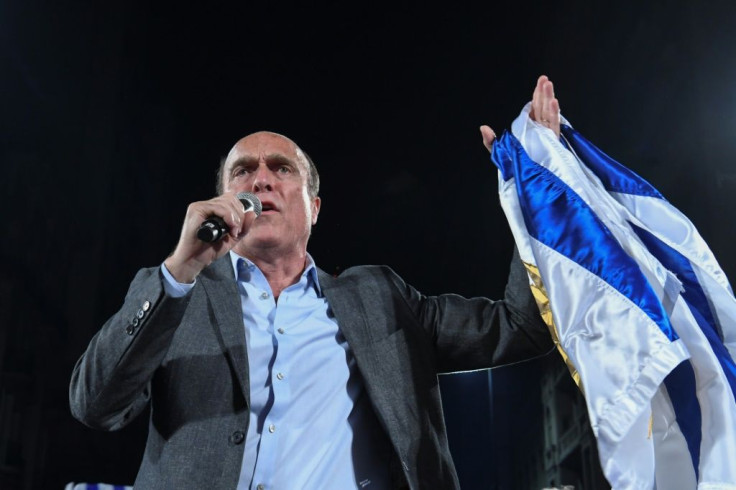Uruguay Prepares To Shun Left In Presidential Vote

A conservative opposition candidate is favored to win Uruguay's presidential election run-off Sunday as the South American country prepares to turn its back on the left after 15 years in power.
Luis Lacalle Pou, leader of the center-right National Party, trailed ruling party candidate Daniel Martinez in the first round, but a voting pact with lower-placed candidates has given him a significant opinion poll lead.
The latest poll shows Lacalle Pou, a 46-year-old former senator, would take 51 percent of the vote, with ex-Montevideo mayor Martinez on 43.
The run-off is effectively a referendum on 15 years of rule by the Broad Front -- or Frente Amplio -- according to Diego Lujan, a political scientist at the University of the Republic in Montevideo.
"When you have a party that has been in government for three terms, with a parliamentary majority that can implement its progam, the party is responsible for its results," Lujan told AFP.
The Broad Front's previous election victories came during periods of growth in Uruguay, but it now faces a backlash from voters angered by a stagnant economy, inflation of 7.5 percent and an unemployment rate of 9.0 percent

Lacalle Pau has tapped in to voter concerns over the country's high tax rates, and promised to look elsewhere to raise the $900 million needed to reduce the public deficit -- currently running at 4.9 percent of GDP.
"Uruguay can't bear any more taxes," he told supporters.

In this country known to be one of the safest in Latin American, rising crime rates are at the top of voters' concerns.
Uruguay has long been considered a bastion of peace and stability in an often turbulent region.
But security has been declining, with a sharp rise in some violent crimes reported last year.

In 2018, South America's second-smallest country registered a record 414 murders, up 45 percent on the year before.
The Broad Front, a coalition of leftist movements, can point to a record of progressive government since it broke a decades-long conservative stranglehold on government in 2005.
Uruguay stood out on the international stage by approving abortion, gay marriage and the small nation pioneered the legalization of cannabis in 2013.
"But this third government of the Broad Front has little claim on success," said Lujan.
As Lacalle Pau -- the son of a former Uruguay president Luis Alberto Lacalle -- made pacts with veteran politicians like Ernesto Talvi of the Colorado party and right-wing figure Guido Manini Rios, Martinez was left with nowhere to turn.
"Three consecutive terms in which it enjoyed a parliamentary majority has meant they weren't used to looking to other parties for support," said Lujan. "But the opposition parties want change."
Martinez, 62, turned to party icon Jose Mujica earlier this month in a bid to boost his appeal, tapping the former president and guerrilla leader as his next agriculture minister should he win.
But enlisting the 84-year-old to the cause has failed to have a significant impact on Martinez's poll standings.
The party still hasn't shaken off the 2017 scandal that forced the resignation of Vice President Raul Sendic, who was tried for embezzlement and abuse of power.
The scandal flew in the face of "a very ethical and very refreshing discourse" that the coalition brought to power in 2005, said Lujan.
Some 2.6 million voters are called to the polls Sunday. The next president will take office in March for five years.
© Copyright AFP {{Year}}. All rights reserved.




















